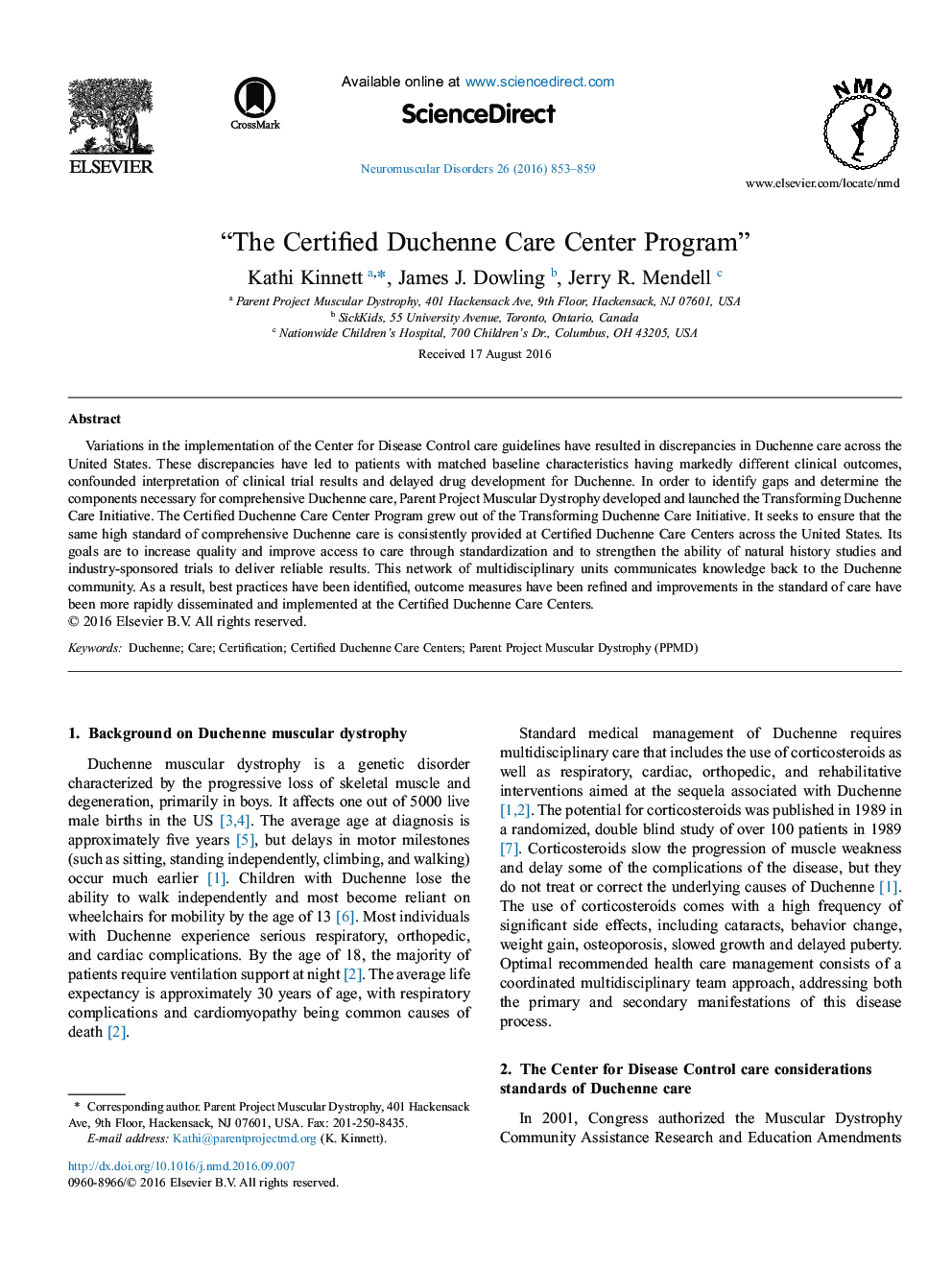| Article ID | Journal | Published Year | Pages | File Type |
|---|---|---|---|---|
| 5632207 | Neuromuscular Disorders | 2016 | 7 Pages |
â¢Variations in the implementation of the CDC care guidelines have resulted in discrepancies in Duchenne care across the U.S.â¢The CDCCP ensures that standardized comprehensive Duchenne care is consistently provided at the CDCCs across the U.S.â¢The CDCCP aims to increase quality and access to Duchenne care and to strengthen industry sponsored clinical trials results.â¢The CDCCP network of multidisciplinary units communicates knowledge back to the Duchenne community.â¢The CDCCP identifies best practices, has refined outcome measures and improved the standard of care at the CDCCs.
Variations in the implementation of the Center for Disease Control care guidelines have resulted in discrepancies in Duchenne care across the United States. These discrepancies have led to patients with matched baseline characteristics having markedly different clinical outcomes, confounded interpretation of clinical trial results and delayed drug development for Duchenne. In order to identify gaps and determine the components necessary for comprehensive Duchenne care, Parent Project Muscular Dystrophy developed and launched the Transforming Duchenne Care Initiative. The Certified Duchenne Care Center Program grew out of the Transforming Duchenne Care Initiative. It seeks to ensure that the same high standard of comprehensive Duchenne care is consistently provided at Certified Duchenne Care Centers across the United States. Its goals are to increase quality and improve access to care through standardization and to strengthen the ability of natural history studies and industry-sponsored trials to deliver reliable results. This network of multidisciplinary units communicates knowledge back to the Duchenne community. As a result, best practices have been identified, outcome measures have been refined and improvements in the standard of care have been more rapidly disseminated and implemented at the Certified Duchenne Care Centers.
